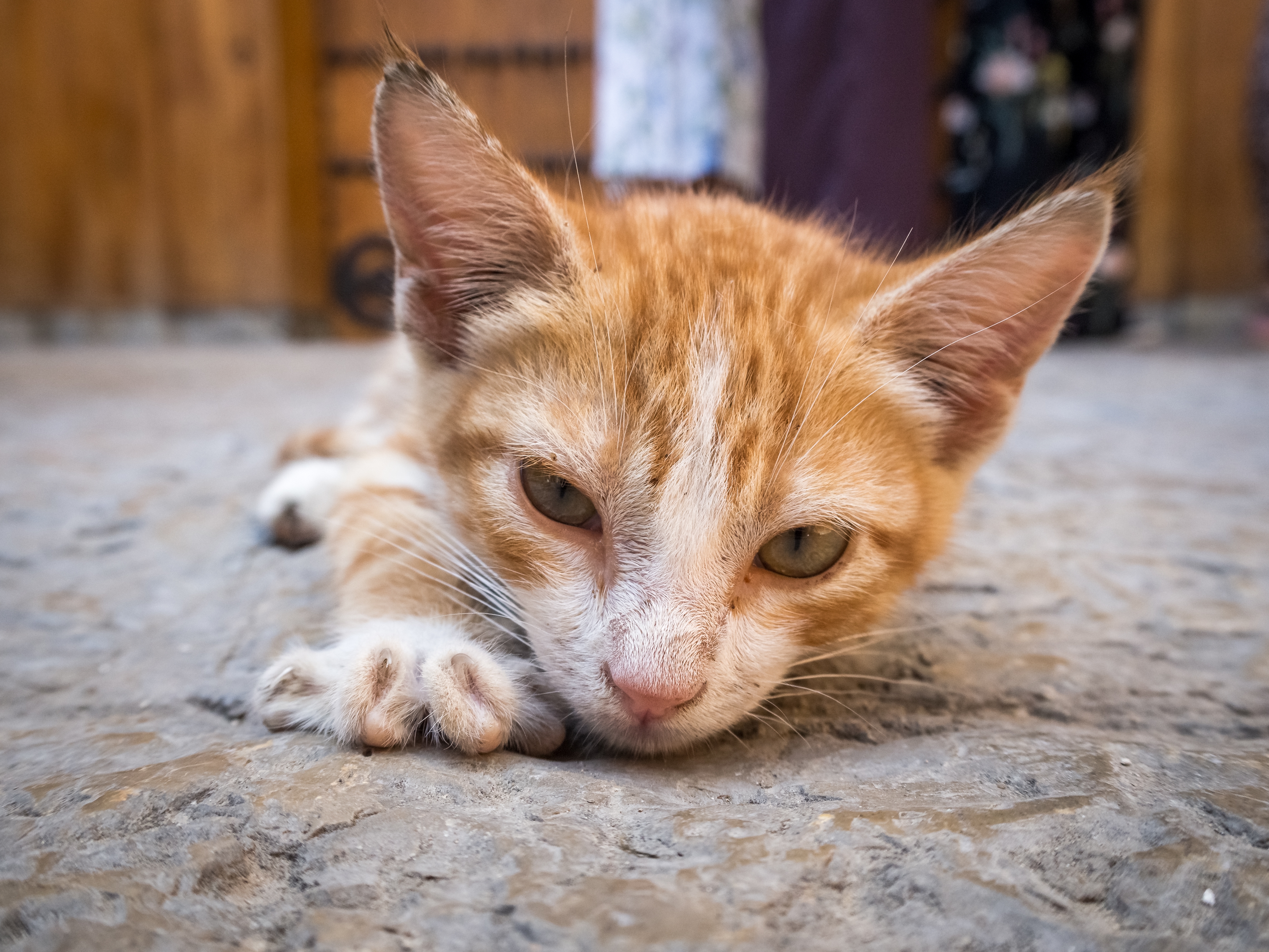Ear mites are tiny parasites that primarily inhabit a cat’s ear canal, though they can occasionally be found on the skin’s surface. These microscopic creatures are especially common in cats and can cause significant discomfort if left untreated.
These parasites, called Otodectes cynotis, cause all sorts of conditions and can even damage your cat’s eardrums! Many diseases that ear mites cause are not life-threatening, but can greatly reduce your kitten’s quality of life and are contagious to other animals such as cats and dogs. They can cause severe irritation for your furry friend, lead to otodectic mange, and make your pet extremely uncomfortable.
While ear mites can lead to uncomfortable symptoms and potential complications, it’s important to note that they are typically treatable and manageable with prompt veterinary care.
How can your cat contract ear mites, what can you do to prevent it, and how can the condition be treated? Here’s everything you need to know about ear mites in cats.
Symptoms of Ear Mites in Cats
Table of Contents
A wary, attentive cat owner will be able to notice ear mite symptoms as they occur. If you notice any ear mite symptoms in your cat, you should schedule an appointment with your veterinarian immediately.
How To Check For Ear Mites In Cats:
- Ear debris, resembling dirt or coffee grounds
- Pain around or in the ear
- Frequent head shaking and scratching
- Tilting of the head
- Ear odors
- Fur loss around ears and eyes
- Lethargy
- Decreased appetite
What Causes Ear Mites in Cats?
Ear mites are quite contagious, meaning they spread from one pet to another. Animals of all types can contract ear mites, but they are especially common in felines, dogs, and wild animals. If your cat spends time outside, there are many opportunities for them to come into contact with pesky mites. Animal shelters are also places where a cat can contract them, so it’s a good idea to give your cat a full veterinary check-up if they’ve recently been adopted.
Contaminated surfaces, such as grooming tools, bedding, and boarding facilities, can also hold mites. Always do your due diligence: use preventative care on your cats, and check for mites frequently. Regular veterinary check-ups are important, especially for outdoor cats and adopted cats. Contact Paoli Vetcare for a full comprehensive cat check-up.
How to Treat Ear Mites in Cats
Treating ear mites in cats is relatively straightforward. Your veterinarian should be able to diagnose your cat easily, and then prescribe anti-parasitic medication. Some of these medications are available in topical or oral formats, and your veterinarian might clean your cat’s ears with a specialized cleaning solution before prescribing antibiotics. Killing the mites is important, but the eggs must be dealt with as well.
If there are secondary infections present, they must be treated. Infestations are troublesome, and your veterinarian will recommend you return after a week or so to ensure the ear mites have been eliminated, and to see if additional treatment is required.
Ear mites are quite contagious, and if you have other pets in your household you will need medications for them as well. Do not use home remedies to cure ear mites—home treatments do not kill mite eggs, and the infestation will continue.

Some treatments may require multiple applications to ensure the mites and eggs are eradicated. It’s also a good idea to do a full deep clean of your cat’s environment—inside and outside the home!
Preventing Ear Mites In Cats
Noticing the symptoms of ear mites in cats and providing the proper at-home and veterinary treatments are important, but it is also possible to avoid ear mites altogether with adequate preventative measures.
Ear mite prevention includes:
- Regular veterinary check-ups
- Proper ear-cleaning techniques
- Limiting outdoor exposure
- Quarantining new pets
- Using preventative medications
- Maintaining a clean environment
By ensuring that your cat receives regular veterinary check-ups and lives in a clean environment, you can greatly reduce the chance of them coming into contact with ear mites, completely preventing spread or infection in the first place.
Key Takeaways on Mites in Cats
If you notice any signs of ear mites in your cat, visit a veterinarian as soon as possible. Paoli Vetcare has decades of experience treating ear mites, and their veterinarians and fully trained staff are extremely committed to overall pet health. Don’t attempt to treat cat ear mites on your own—a veterinarian with real expertise will be able to eliminate ear mites at the source, as well as give you additional information on future preventative care.
By taking preventive measures—such as regular ear cleaning and using prescribed medications—you can ensure your cat doesn’t contract ear mites in the future! If you suspect your cat may have ear mites or if you’ve noticed any of the symptoms mentioned above, don’t wait. Contact our veterinary team at Paoli Vetcare today to schedule an examination. Early detection and treatment are key to ensuring your cat’s comfort and preventing more serious complications. Call us at [610-644-5360] or book an appointment online through our website.








